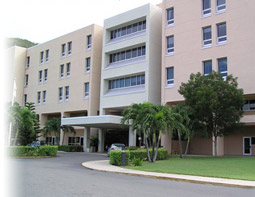The original article can be found in: Virgin Island Daily News By JOY BLACKBURN
ST. CROIX – The V.I. Supreme Court has cleared the way for the retrial of three former Schneider Regional Medical Center executives after affirming the results of a Sept. 7, 2012, trial court opinion.
“The ultimate result reached by the Superior Court is affirmed based on this Court’s consideration of the entire record and the totality of the circumstances, even if the Superior Court itself failed to do so,” the V.I. Supreme Court opinion, released Friday, stated.
On Oct. 11, jury selection in the retrial of the trio – former Schneider Regional executives Rodney Miller Sr., Amos Carty Jr. and Peter Najawicz – in V.I. Superior Court came to an abrupt halt after the high court responded to a petition by Najawicz.
Najawicz had asked the V.I. Supreme Court to put any further proceedings in his retrial on hold until the high court decided a matter he raised on appeal.
The high court agreed and issued an order.
In Friday’s opinion, the justices affirmed the trial court opinion and remanded the case “so that the Superior Court may proceed with a retrial in the event the People desire to continue to prosecute Najawicz.”
Najawicz, Miller and Carty initially were tried on a multitude of white-collar criminal charges during May and June of 2011. They are accused of conspiring together to steal money from the hospital.That trial ended in a mistrial June 24, 2011, when the jury deadlocked after deliberating for 5½ days.
In July 2011, Najawicz asked the trial court to dismiss on grounds that continued prosecution of the case would violate the double jeopardy clause of the U.S. Constitution, according to court documents.
He contended that the trial court did not make the required findings in declaring the mistrial that would enable prosecutors to retry him without violating the constitutional prohibition on double jeopardy, according to Friday’s opinion. Najawicz also argued that the circumstances that would lead to that finding were not present.
Superior Court Judge Michael Dunston, who presided over the trial, did not rule on Najawicz’s motion for more than a year. Dunston issued an opinion denying the motion on Sept. 7, 2012, less than a month before the retrial was scheduled to start, according to court documents.
Najawicz filed a notice of appeal, and when the retrial wasn’t postponed until the appeal was decided, he petitioned the high court to stop the proceedings.
In its opinion Friday, the high court found that the trial court did not abuse its discretion when it declared a mistrial.
The Supreme Court opinion notes that viewing some of the trial court’s actions in isolation – including the delay in ruling on the motion and problems, such as inapplicable legal standards and incorrect factual findings in the trial court’s opinion – may not reflect well on its decision.
But the high court points out in the opinion that it is required to review the record as a whole, in light of the totality of the circumstances, to “ascertain whether the trial judge exercised sound discretion” in declaring the mistrial.The trial court “was confronted with extraordinary and striking circumstances demonstrating a high degree of necessity that the trial come to a premature end, including sidebar conferences, non-unanimous verdict forms, a note from the jury foreman, the complexity of the charges, as well as the length of both the trial and deliberations,” the summary of the V.I. Supreme Court opinion states.
“The Superior Court’s action appears reasonable, and it cannot be concluded that it acted irrationally or irresponsibly, or upon reasons completely unrelated to trial problems, in finding that additional time for deliberations would not make a difference and that declaration of a mistrial was necessary due to the jury’s inability to reach a unanimous verdict,” the summary continues. “The ultimate result reached by the Superior Court is affirmed based on this Court’s consideration of the entire record and the totality of the circumstances, even if the Superior Court itself failed to do so.”














